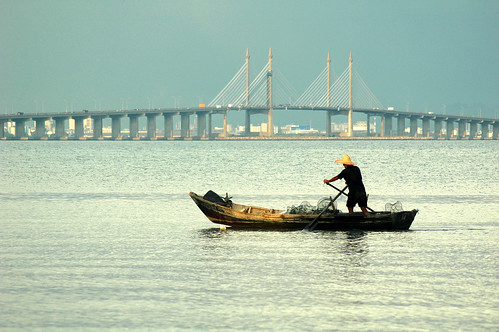Sub-themes: Regenerating Social Science with (1) Locally Relevant (Indigenous) Knowledge Systems and (2) Sustainability Principles
October 5-7, 2012
Venue: AlBukhary International University, Alor Setar, Kedah, Malaysia (www.aiu.edu.my)
Conference organisers: AiU and Multiversity
Suppported by Ministry for Higher Education, Malaysia/AKEPT – Higher Education Leadership Training Academy
The International Conference on “University Leadership for Integrating Knowledge Diversity for Sustainability” scheduled for October 2012 is taking place at a most turbulent time in the lives of universities and higher education.
Several universities have been seriously considering disassociating themselves progressively from decades-long dependence on imported Western academic frameworks and to replace these with more productive interactions with diverse knowledge traditions including local or indigenous knowledge available within local, regional and national arenas. In contrast with Western knowledge frameworks, local knowledge systems carry inbuilt sustainability features.
At the global level, despite numerous declarations and initiatives to formulate and implement more just, resilient, environmentally sustainable policies, change has come slowly, in fact too slowly, for the planet.
Post Rio+20, higher education (HE) was to play a more critical leadership role in the changing intellectual landscape especially in the effort to redefine the paradigm of knowledge and learning at least at the institutional level and bring this in line with sustainability directives.
However, the HE system is not finding it easy to transform itself to meet the requirements of the new construct required with a clear change in purpose. The challenges expected include the extensive reorganisation and transformation of knowledge to enable universities to allow for a more integrated approach to address urgent and serious global issues and overall strengthening of the capacity of social science to generate socially useful, culturally harmonious and relevant knowledge and information. Hence the proposed October Conference.
The new approach which the October Conference seeks to host proposes to cut across conventional knowledge disciplines and is encompassed within a holistic framework which includes careful study, revalidation and use of thousands of non-western technologies, values and wisdom that have been generated in diverse, local, national and regional contexts.
The conference follows closely on the themes of the international conference on “Decolonising Our Universities” held by Universiti Sains Malaysia in June 2011. However, where the earlier conference dwelt largely on a comprehensive critique of the existing – admittedly Eurocentric – university system and the need to change, the AiU October Conference proposes to transcend those boundaries and provide leadership in the challenging sphere of revalidating culture-based knowledges, in addition to proposing alternative knowledge structures that further sustainability and sustainable livelihoods, thereby strengthening social science.
The AiU International conference is thus designed to tackle two fundamental sub-themes:
- Higher education for sustainability which will look at the new construct with a clear change in purpose to transform existing knowledge structures in social science to allow for a more integrated approach to sustainability problems facing the planet.
- Examination, revalidation and use of indigenous knowledge, wisdom and values within the university (higher education) system leading to serious consideration and integration of these knowledge systems at the national, regional and global levels.
- The conference is inviting international and local experts and practitioners to discuss the sub themes with a view to:
- Appraise the existing knowledge system within the framework of sustainable development directives of the international community and to generate an informed critique, as it is widely accepted that conventional frameworks of higher education and development are unsustainable and that the existing structure of knowledge generation in social science does not lead to sustainable practice.
- Examine current gaps in the support of sustainable education and discuss alternative knowledge constructs, especially indigenous knowledge, to fill these gaps.
- Achieve a credible target of integrating indigenous knowledge, wisdom and values with conventional social science in order to implement the internationally endorsed directives relating to sustainability.
The conference will be of two full days’ duration on both the proposed themes and will host approximately 100 people both from the international arena and from Malaysia. It will commence on 5th October (Friday afternoon) and conclude on 7th evening. There will be an official opening ceremony and two key note addresses for each of the sub-themes.
